Related Research Articles

Leroy Jenkins was an American composer and violinist/violist.
Judyann Elder is an American actress, director, and writer. Elder played Nadine Waters on the FOX sitcom Martin. She also played Harriette Winslow on CBS Family Matters for the remaining eight episodes of its ninth and final season after the departure of Jo Marie Payton. Elder is also a veteran of the stage who has appeared in scores of theatrical productions throughout the United States and Europe.
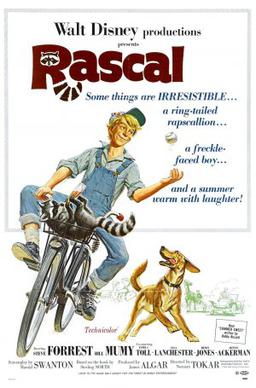
Rascal is a 1969 American drama children's film made by Walt Disney Productions.

Robert Hooks is an American actor, producer, and activist. Along with Douglas Turner Ward and Gerald S. Krone, he founded The Negro Ensemble Company. The Negro Ensemble Company is credited with the launch of the careers of many major black artists of all disciplines, while creating a body of performance literature over the last thirty years, providing the backbone of African-American theatrical classics. Additionally, Hooks is the sole founder of two significant black theatre companies: the D.C. Black Repertory Company, and New York's Group Theatre Workshop.

Glynn Russell Turman is an American actor, director, writer, and producer. First coming to attention as a child actor in the original 1959 Broadway production of A Raisin in the Sun, Turman is known for his roles as Lew Miles on the prime-time soap opera Peyton Place (1968–1969), high school student Leroy "Preach" Jackson in the 1975 coming-of-age film Cooley High, math professor and retired Army colonel Bradford Taylor on the NBC sitcom A Different World (1988–1993), and Baltimore mayor Clarence Royce on the HBO drama series The Wire. He received the Primetime Emmy Award for Outstanding Guest Actor in a Drama Series for his role on the HBO drama series In Treatment.
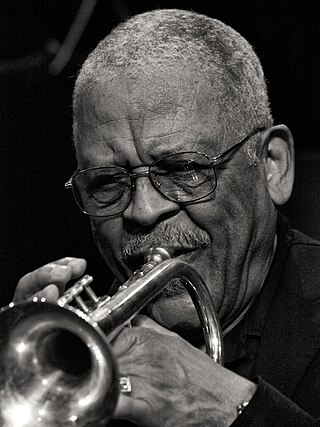
Bobby Lee Bradford is an American jazz trumpeter, cornetist, bandleader, and composer. In addition to his solo work, Bradford is noted for his work with John Carter, Vinny Golia and Ornette Coleman. In October 2009, Bradford became the second recipient of the Festival of New Trumpet Music's Award of Recognition. He taught at Pomona College for 44 years.

Mantan Moreland was an American actor and comedian most popular in the 1930s and 1940s. He starred in numerous films. His daughter Marcella Moreland appeared as a child actress in several films.
Lonne Elder III was an American actor, playwright and screenwriter. Elder was one of the leading African-American figures who informed the New York theater world with social and political consciousness. He also wrote scripts for television and film. His best known play, Ceremonies in Dark Old Men, won him a Drama Desk Award for Most Promising Playwright and was nominated for the Pulitzer Prize. The play, which was about a Harlem barber and his family, was produced by the Negro Ensemble Company in 1969.
Discography for jazz saxophonist Anthony Braxton.
The Negro Ensemble Company (NEC) is a New York City-based theater company and workshop established in 1967 by playwright Douglas Turner Ward, producer-actor Robert Hooks, and theater manager Gerald S. Krone, with funding from the Ford Foundation. The company's focus on original works with themes based in the black experience with an international perspective created a canon of theatrical works and an audience for writers who came later, such as August Wilson, Suzan-Lori Parks, and others.

Five on the Black Hand Side is a 1973 African American comedy film based on the 1969 play of the same name by Charlie L. Russell. It was shot in Los Angeles, California. Leonard Jackson appeared as John Henry Brooks. He was cast in Steven Spielberg's The Color Purple fifteen years later.
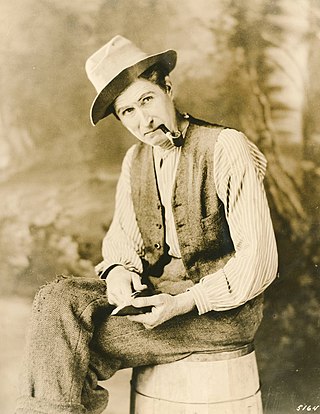
Russell McCaskill Simpson was an American character actor.
Graham Brown was an American actor known for his work in theatre.
Edmund James Cambridge Jr. was an American actor and director who was a founding member of the Negro Ensemble Company (NEC) and the Kilpatrick-Cambridge Theater Arts School.

Douglas Turner Ward was an American playwright, actor, director, and theatrical producer. He was noted for being a founder and artistic director of the Negro Ensemble Company (NEC). He was nominated for the Tony Award for Best Featured Actor in a Play in 1974 for his role in The River Niger, which he also directed.
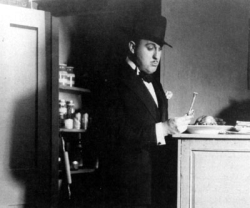
Garry Marsh was an English stage and film actor.
Council Cargle was an American stage and film actor, whose career in theater spanned more than six decades. Based in Detroit, Cargle was described as one of the "best-known theater actors" in the U.S. state of Michigan. His film credits included Detroit 9000 in 1973, Word of Honor, a 1981 television movie, and Quentin Tarantino's Jackie Brown in 1997.

The Streets of Paris is a musical revue featuring Bobby Clark, Luella Gear, Abbott and Costello and Carmen Miranda, debuted on May 29, 1939 in Boston and on June 19, 1939 in New York. Had two hours and-a-half, with the interval. The musical was staged from June 1939 to 10 February 1940, totaling 274 presentations.
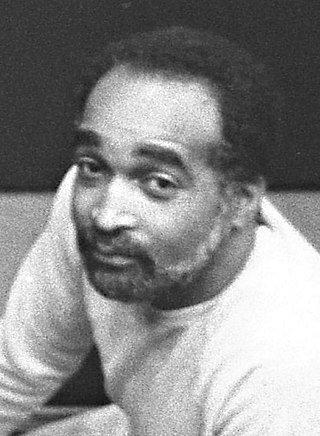
David Downing was an American stage, film, and television actor. He was one of the original members of the Negro Ensemble Company in New York City.
Charles Weldon was an actor, director, educator, singer, and songwriter. He was the artistic director of the Negro Ensemble Company for thirteen years. He was the co-founder of the Alumni of this company, and directed many of their productions. During his career he worked with Denzel Washington, James Earl Jones, Cicely Tyson, Alfre Woodard, Muhammad Ali, and Oscar Brown Jr.
References
- ↑ "Negro Ensemble Company, The (1967- )", BlackPast.org.
- ↑ "About the Negro Ensemble Co.", American Masters, August 18, 2004.
- ↑ "Oxford Companion to African American Literature: Ceremonies in Dark Old Men". Ask.com. Retrieved 25 April 2012.
- ↑ Dennis McLellan (September 22, 2001). "Edmund J. Cambridge, 80; Veteran of Theater Started Troupe, Acting School". Los Angeles Times.
- ↑ Tom Prideaux (April 4, 1969). "One Kind of Family Drama That Works". Life Magazine.
- ↑ Molly Haskell (May 8, 1969). "Theatre: Ceremonies in Dark Old Men". Village Voice .
- ↑ Sylvie Drake (February 9, 1988). "A Solid Revival of 'Ceremonies'". Los Angeles Times .
- ↑ Janice Arkatov (February 5, 1988). "'Ceremonies' Marks Tribute to Black History Month : Judyann Elder Directs Husband's Classic Play That Offers Sad but Hopeful Statement". Los Angeles Times.
- ↑ "Ceremonies in Dark Old Men". TheaterReview.com. August 2, 2007.
- ↑ Gussow, Mel. "Rosalind Cash, 56, at Home on Stage and Screen", The New York Times , November 3, 1995. Accessed December 3, 2007.